NASCAR uses specialty track-drying technology to rid the rain from racetracks
Daytona 500 starts NASCAR's 75th season
Racing fans are in for a treat with the return of NASCAR on FOX this weekend with the 65th running of the Daytona 500. (FOX Sports)
The weather has often been the biggest challenge for NASCAR, but the impact of rain is now significantly reduced thanks to track-drying technology.
NASCAR's Air Titan 2.0 is a track-drying apparatus that uses compressed air to push water off the racetrack.
On oval tracks, like the Daytona International Speedway, races cannot happen if the course is wet. Slicks, the tires used at oval tracks, cannot handle the precipitation due to the lack of tread pattern on the tires.
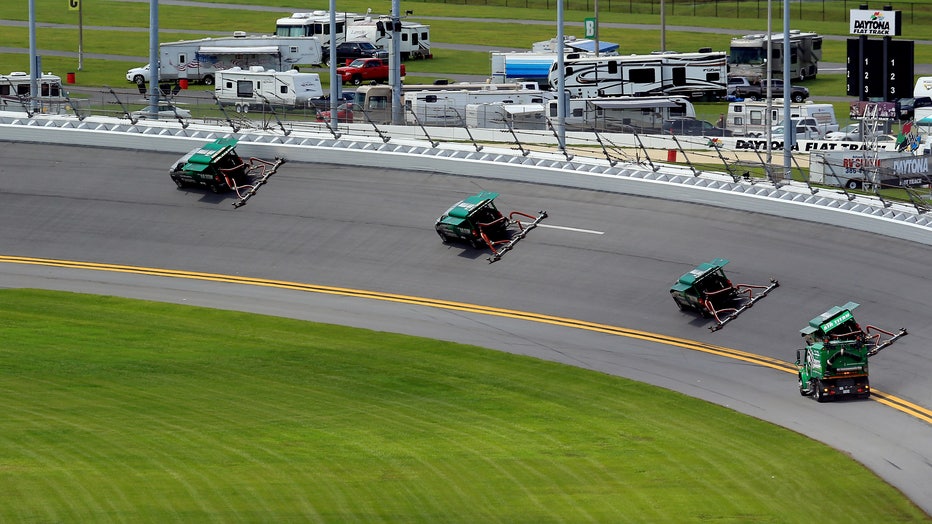
Air-Titan 2.0 track dryers run during the NASCAR Sprint Cup Series Coke Zero 400 at Daytona International Speedway on July 6, 2014 in Daytona Beach, Florida. (Photo by Daniel Shirey/Getty Images)
Thomas Davenport, Manager of Track Services for NASCAR, says that the Air Titan trucks use a large volume of air to eliminate excess moisture off the speedway.
WATCH: LIGHTNING STRIKES HEADQUARTERS OF DALE EARNHARDT JR.'S RACING TEAM
"The air from the blower goes through a series of hoses, and it comes down on an air knife that you see pulled along behind the truck," Davenport says. "In a sense, it's a squeegee, but it's of air. So, if you think of folks squeegeeing water off a window or things like that, it's the same effect. We just use it with air."
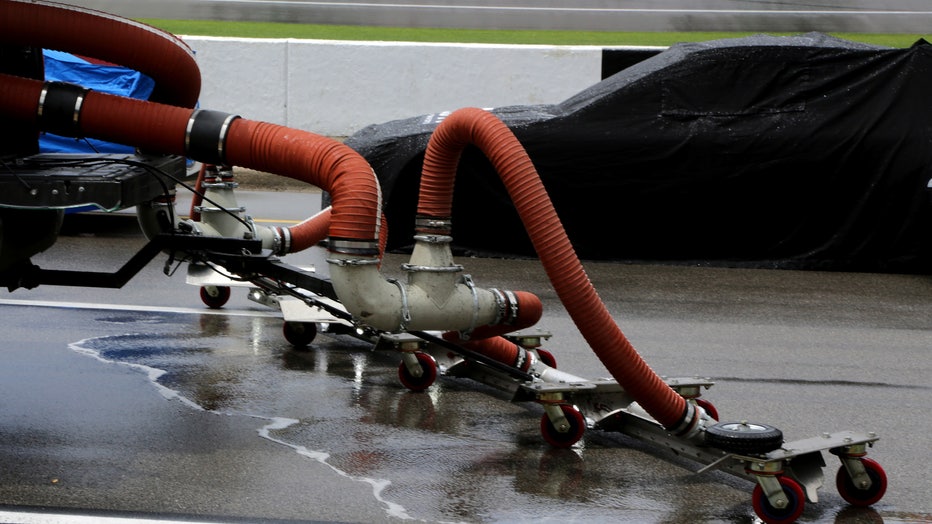
A detailed view of an Air Titan 2.0 as it works to dry pit road during the NASCAR Sprint Cup Series Quicken Loans 400 at Michigan International Speedway on June 14, 2015 in Brooklyn, Michigan. (Photo by Jerry Markland/Getty Images)
But the work isn't done yet. Once the trucks have done a couple of laps around the track, it is then up to air blowers to rid the moisture from the pores on the tracks.
FROM IN-CAR TEMPERATURES AS HIGH AS THE 130S TO RAIN, HOW WEATHER IMPACTS NASCAR RACES
"We use our buffalo turbine air blowers, and we use our jet dryers to combine and apply heat to the surface, just like you would think of a hair dryer," Davenport explains. "You know when you're drying your hair out, right, you use the towel and ring your hair out to get the excess moisture off and then the hair dryer is just getting what's left behind. It's the same way with the jet dryers. Jet driers come behind and take out the rest of that moisture that's in the top layer of the asphalt."
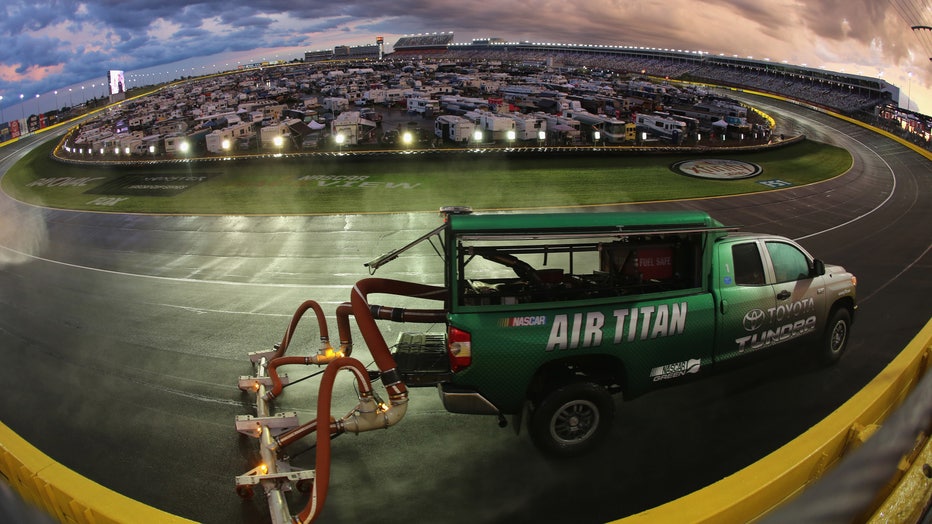
An Air Titan dries the track during a rain delay during the Monster Energy NASCAR Cup Series Coca-Cola 600 at Charlotte Motor Speedway on May 28, 2017 in Charlotte, North Carolina. (Photo by Jerry Markland/Getty Images)
There has been a 50% decrease in drying time because of the technology.
WHY YOU'LL SEE MORE DANCING IN THE RAIN THAN DRIVING AT THE DAYTONA 500
And Davenport says that there's an efficiency standpoint that makes a big difference.
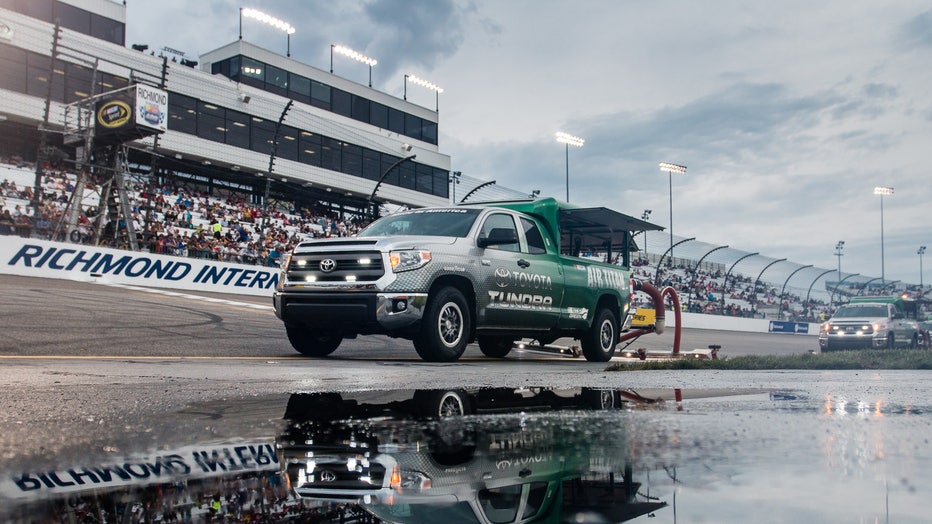
September 12, 2015: NASCAR's Air Titan's working to get the race surface ready for the start of the Federated Auto Parts 400 at Richmond International Raceway in Richmond, VA. (Photo by David Hahn/Icon Sportswire/Corbis/Icon Sportswire via Getty Imag
"When you can cut down the drying time and the run time, you're your efficiency across the board goes up," he says.
The forecast looks dry for this year's Daytona 500 race on Sunday.
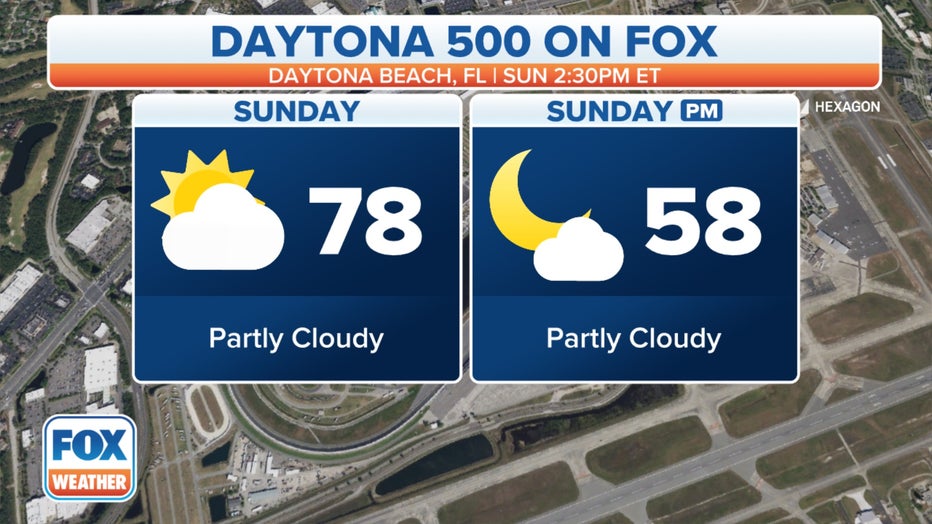
Forecast for Daytona 600.(FOX Weather)
Davenport says even that even if there is no rain in the forecast, all 20 Air Titan trucks, plus the two service trucks that support the fleet, will be ready in case the track needs drying for the Daytona 500.
LINK: Get updates and more on this story at foxweather.com.

